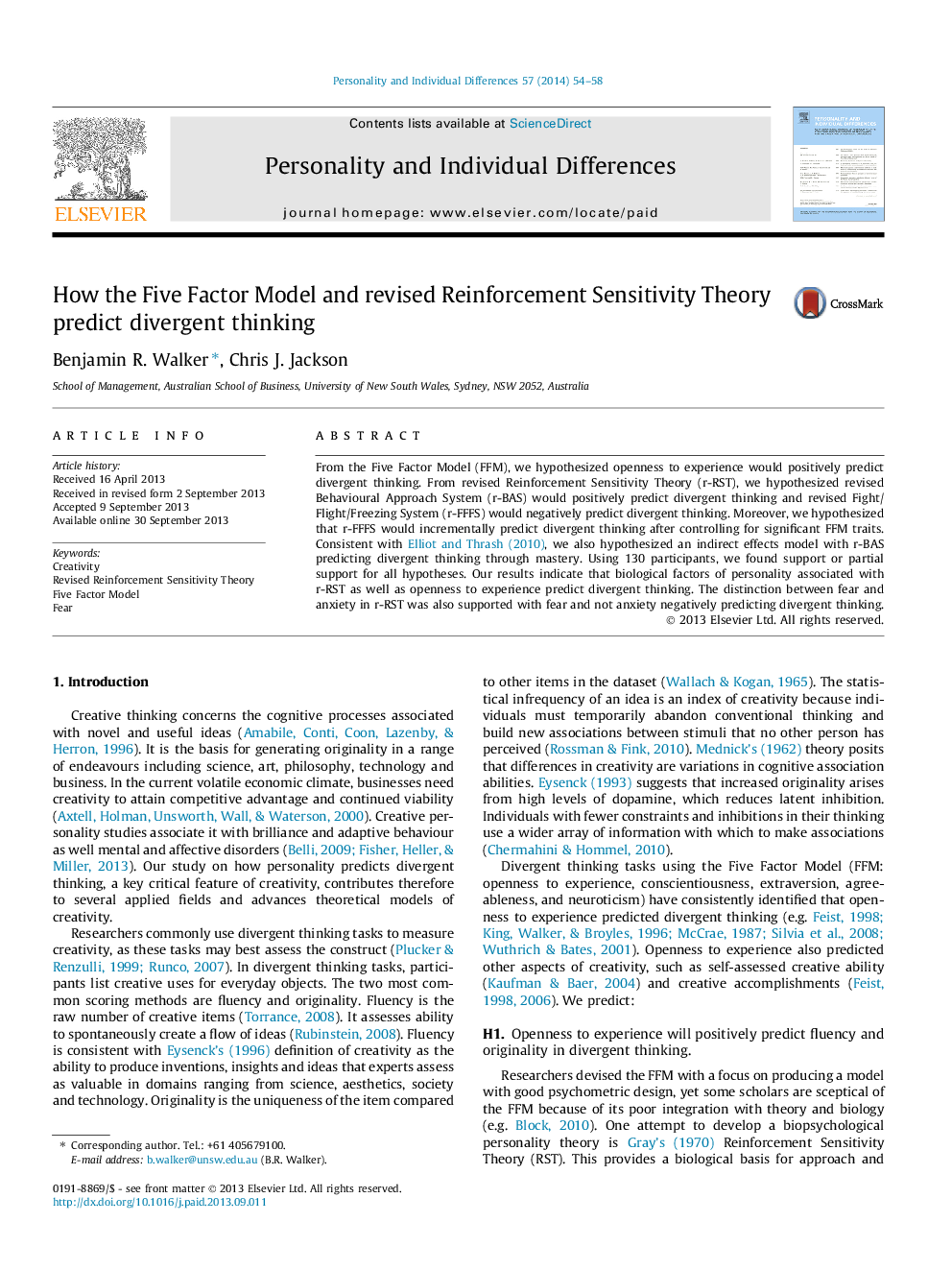| کد مقاله | کد نشریه | سال انتشار | مقاله انگلیسی | نسخه تمام متن |
|---|---|---|---|---|
| 890899 | 1472060 | 2014 | 5 صفحه PDF | دانلود رایگان |
• Fear and openness to experience predict divergent thinking.
• Reward seeking through mastery predicts divergent thinking.
• Fear is shown to be a useful personality trait.
From the Five Factor Model (FFM), we hypothesized openness to experience would positively predict divergent thinking. From revised Reinforcement Sensitivity Theory (r-RST), we hypothesized revised Behavioural Approach System (r-BAS) would positively predict divergent thinking and revised Fight/Flight/Freezing System (r-FFFS) would negatively predict divergent thinking. Moreover, we hypothesized that r-FFFS would incrementally predict divergent thinking after controlling for significant FFM traits. Consistent with Elliot and Thrash (2010), we also hypothesized an indirect effects model with r-BAS predicting divergent thinking through mastery. Using 130 participants, we found support or partial support for all hypotheses. Our results indicate that biological factors of personality associated with r-RST as well as openness to experience predict divergent thinking. The distinction between fear and anxiety in r-RST was also supported with fear and not anxiety negatively predicting divergent thinking.
Journal: Personality and Individual Differences - Volume 57, January 2014, Pages 54–58
